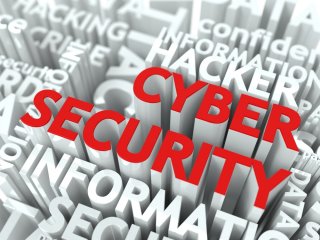Posted February 5th, 2020
By Kris Powers
The Bureau of Labor Statistics defines a cyber security professional, or information security analyst, as someone who plans and carries out security measures to protect networks and systems within an organization. As the number of cyber attacks continues to increase, their job and responsibilities are continually expanding. Some daily tasks include:
- Monitor an organization’s networks for security breaches and investigate a violation when one occurs
- Install and use software, such as firewalls and data encryption programs, to protect sensitive information
- Prepare reports that document security breaches and the extent of the damage caused by the breaches
- Conduct penetration testing, which is when analysts simulate attacks to look for vulnerabilities in their systems before they can be exploited
- Research the latest information technology (IT) security trends
- Develop security standards and best practices for the organization
- Recommend security enhancements to management or senior IT staff
- Help computer users when they need to install or learn about new security products and procedures
Cyber security professionals are also heavily involved in creating a recovery plan if their organization does in fact have a disaster. These plans include preventative measures and how to restore IT function after a disaster to keep the company operating. They are continually testing the steps in their recovery plan and changing and improving that plan as cyber attacks get more difficult to prevent.
Cyber security professionals work in a wide variety of settings, but the most common are with computer systems and design companies, financial institutions, insurance companies, management companies, enterprises and healthcare companies. More and more companies are seeing the value in having cyber security and are expanding their efforts to prevent a security breach.
The career of cyber security professionals, according to BLS.gov, is expected to grow an astounding 32% from 2018 to 2028. With the increase in cyber attacks, companies are hiring more security analysts to come up with innovative solutions to prevent hackers from stealing critical information. Banks, corporations and healthcare facilities are hiring cyber security professionals at a fast rate. With the increase in electronic health records, patient’s private health information is more accessible to hackers. This also holds true for customer’s financial information as more banks do business online. Cyber Security is a field that is growing quickly and with the new technology that is being developed daily, there is no chance it will be slowing down anytime soon!
If you love working with computers and computer programming and want to prevent hackers from getting vital information, check out our Cyber Security Professional Program today!
The Cyber Security Professional Program includes Cisco Certified Entry Networking Technician (CCENT) Interconnecting Networking Devices Part 1, Cisco Certified Network Associate (CCNA) Interconnecting Networking Devices Part 2 and Better Interpersonal Communication courses.
Two of the courses in this program are linked to national certification opportunities:
- Cisco Certified Entry Networking Technician (CCENT) Interconnecting Networking Devices Part 1
Upon successful completion of this course, students will be prepared to sit for the Cisco Certified Entry Networking Technician 100-105 ICND1: CCENT certification exam.
- Cisco Certified Network Associate (CCNA) Interconnecting Networking Devices Part 2
Upon successful completion of this course, students will be prepared to sit for the Cisco Certified Network Associate Exam 200-105 ICND2: CCNA certification exam.
Ed4Career wants to ensure that you have access to the latest training materials and information. The content of the Cyber Security course is based on the Department of Homeland Security's Essential Body of Knowledge (EBK) for IT Security.
Contact us today to learn more!





